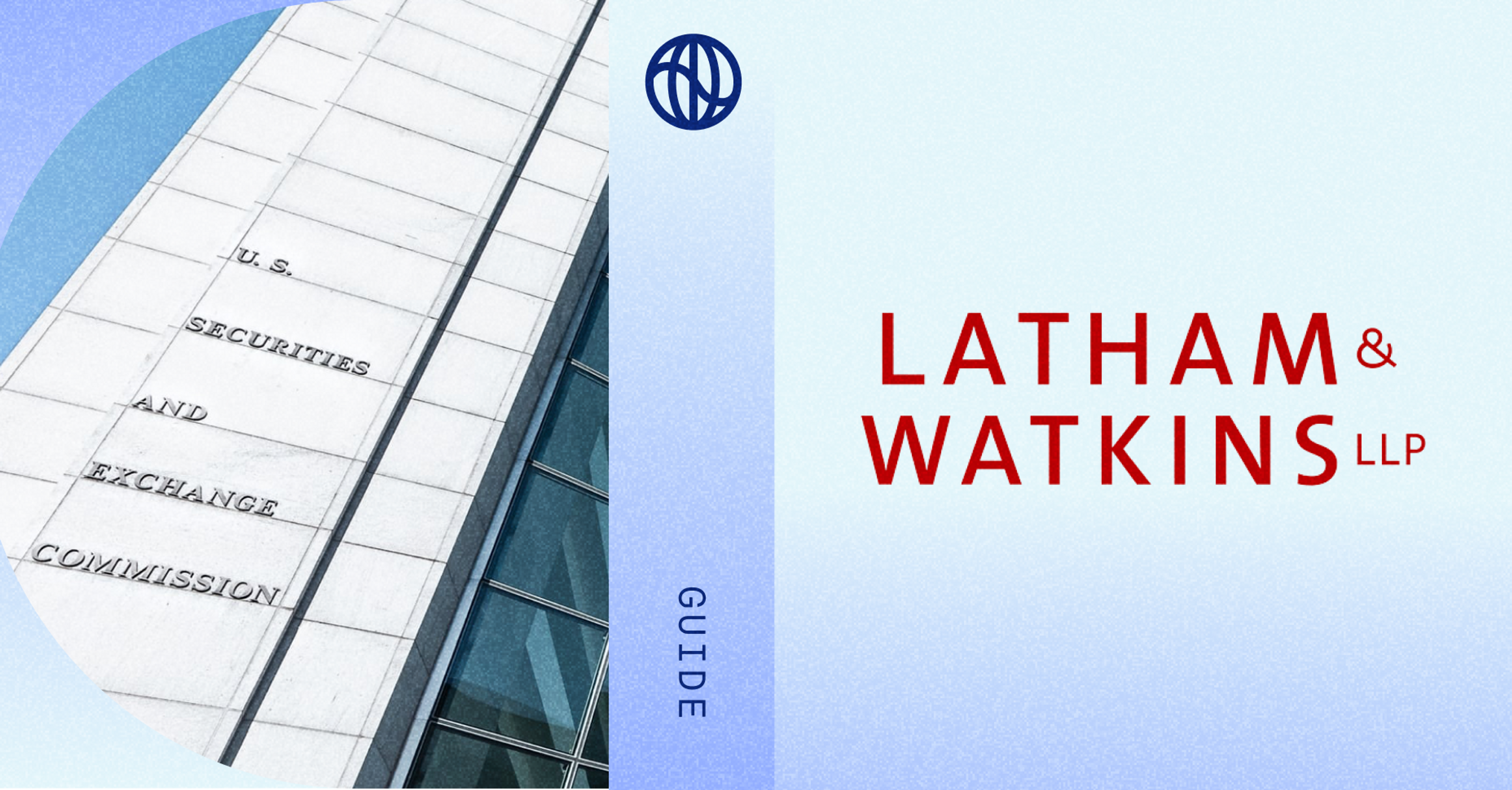

The SEC’s climate disclosure rule, as proposed, requires public companies in the US to report climate-related information alongside financial statements in their 10-Ks. The rule requires detailed information about emissions, climate risk, governance, and strategy that many companies to date are unlikely to have collected in full. Such companies will need to adjust their annual processes to comply with the new proposed 10-K requirements.
Matthew Morreale is the head of the Environmental Practice at Cravath, Swaine & Moore, where he regularly counsels companies and their boards of directors on matters relating to ESG concerns. Michael L. Arnold is a member of Cravath’s Corporate Governance and Board Advisory practice, where he advises boards of directors and senior management on a broad range of corporate governance, public reporting, disclosure, and compliance matters.
Watershed asked Morreale and Arnold about how the SEC’s proposed climate disclosure rule could impact companies’ annual 10-K processes; which requirements they think will be the most challenging for companies to comply with; and why it’s important to start preparing now.
Historically, what’s it been like pulling together a 10-K?
An annual report on Form 10-K includes a wide range of disclosure requirements, including a detailed narrative description of the business and a detailed accounting of anything that could be relevant to investors, like information on material factors that could make an investment risky or ongoing legal proceedings. The company must also include audited financial statements and accompanying notes as part of the annual report, along with an opinion of the company’s independent auditors.
Consistent with the breadth of these requirements, preparation of an annual report requires input from a number of company personnel. These include the legal department, accounting department, and operational management across the business, as well as the disclosure committee and board of directors.
It also requires external coordination with the independent auditors and outside counsel to review multiple drafts of the annual report. Unsurprisingly, the process of preparing an annual report requires considerable time and effort from those involved.
How does the SEC’s proposed climate disclosure rule impact that process?
If adopted as proposed, the SEC’s rules would require comprehensive climate-related disclosures to be included in annual reports, as well as updated disclosure in quarterly reports of any material changes to previous climate-related disclosures.
The proposed rules are wide-ranging and include:
- significant and detailed line-item disclosures in a number of climate-related areas, such as climate risk identification, management, and governance
- disclosure of Scope 1 and Scope 2 greenhouse gas (GHG) emissions and, if material or included in an emissions target, Scope 3 emissions
- mandatory third-party attestation over Scope 1 and Scope 2 GHG emissions
- disclosure of GHG emission reduction targets, if any, and related information
- new requirements under Regulation S-X requiring climate-specific disclosures in a new note to companies’ audited financial statements
In short, the proposed rules would not only create a new item of Form 10-K, they would effectively create an entirely new work stream with respect to the annual reporting process. This also partially depends on the extent to which companies are already disclosing their climate-related data on a voluntary basis or pursuant to other regulatory requirements, such as the EPA’s greenhouse gas–reporting rules.
Beyond requiring additional company personnel to prepare these disclosures, companies will require a significant investment in new control processes and review procedures to ensure that reliable and disclosure-ready data is available for the new climate reporting requirements.
All of this will require significant time and resources. Practices within a company are likely going to need to evolve and improve over time.
How could changes made by the SEC between the proposed and final rules affect the 10-K preparation process?
The proposed rules have generated historic levels of comment. While many comments support the rules as proposed, a number of comments critical of the proposed rules—or at least portions of them—have come from companies, academics, industry, professional associations, and other constituencies. Given this reaction, as well as the likelihood of litigation challenges to the rules once they are finalized, it is likely that any changes to the proposed rules before they are finalized would generally have the effect of moderating rather than further expanding the new disclosure requirements.
Certain components of the proposed rules—for example, the requirements as to Scope 3 reporting, the timing of GHG emissions reporting, attestation requirements, and the new Regulation S-X financial statement metrics requirements—are considered particularly controversial and thus could represent areas of potential future compromise by the SEC.
That said, even the portions of the rules that are least controversial—for example, the disclosures as to climate-related governance, strategy, and risk management—will still entail a significant amount of additional work for companies preparing their 10-K filings.
Given some of the challenges that compliance with the rules would present, we would not advise companies to delay consideration of such requirements until the rules are finalized.
Which of the proposed new climate disclosures do you expect will be the most challenging for companies?
We expect the most difficult aspect of compliance will be building and implementing controls and procedures to collect and maintain data that would have to be reported to comply with the proposed rules. This is especially true for companies that have not been voluntarily collecting and disclosing climate-related data. Fortunately, many companies have begun doing so, to varying degrees. Compliance with the financial statement disclosure requirements may also prove to be particularly challenging, given their effect on the audit process.
Under the proposed rules, a filing that includes the new climate disclosure as well as audited financial statements must also include certain disaggregated climate-related financial statement metrics, subject to a 1% materiality threshold. These include financial impact metrics, expenditure metrics, and financial estimates assumptions—as they relate to or are impacted by severe weather events and other natural conditions—and transition activities to reduce GHG emissions or mitigate transition risks. Since this information would be included in the financial statements, it falls within the scope of audit procedures performed by the company’s independent auditors as well as the company’s internal control over financial reporting and related CEO and CFO certifications. Even if the SEC adopts a higher materiality threshold—for example, at a 5% level—these controls and procedures will still be required.
Collection of GHG emissions data will also be a challenging disclosure requirement. Although the proposed rules provide some accommodation to allow for the use of estimates for the fourth fiscal quarter, GHG emissions data collection often lags behind other financial metrics, and companies may still experience challenges accelerating their collection and analysis of this data to accommodate reporting, particularly if Scope 3 disclosures will be required. In addition to this timing challenge, data collection and/or calculation methodologies are continuing to develop and may involve certain uncertainties, such as in estimating Scope 3 emissions.
What can companies do now to make the process smoother?
Companies should begin preparing now for compliance with the extensive new requirements reflected in the proposed rules. In addition to starting to measure, collect, and analyze relevant data and to build and implement controls and procedures as mentioned above, companies may want to conduct a gap analysis. This entails evaluating their existing climate-related disclosures—including in their SEC filings, on their websites, and in any standalone ESG reports—and assessing what additional disclosures would be needed to comply with the proposed rules.
Companies should also revisit their climate-related risk oversight and management practices, given that the proposed rules would require significant disclosures in this area. Companies should specifically consider whether any enhancements are warranted as to how the board oversees such risks, including the role of the full board and any board committees, the role of management, and any outside consultants or advisors. Since the proposed rules also require the disclosure of climate-related expertise at the board and management levels, companies should carefully assess how they may be able to respond to these requirements, either by bringing in outside personnel or additional training of existing management or directors.
To be prepared for the requirement to deliver attestation over GHG emissions, companies should also monitor the development of the market for attestation providers and the development of related standards for how such attestation should be conducted. Similarly, companies should track developments of the auditing standards that will be necessary for the Regulation S-X financial climate metrics in the financial statements, as the auditing standards may affect how companies need to prepare their financial statements.








